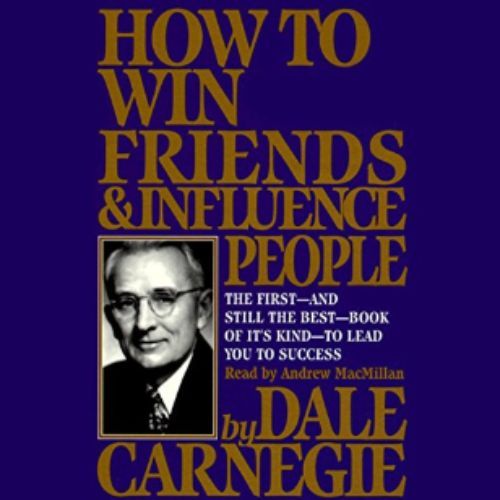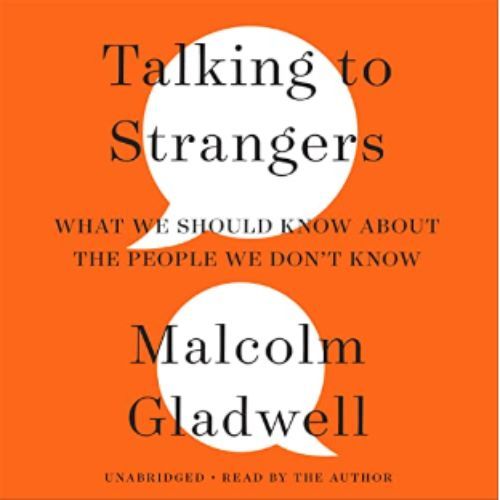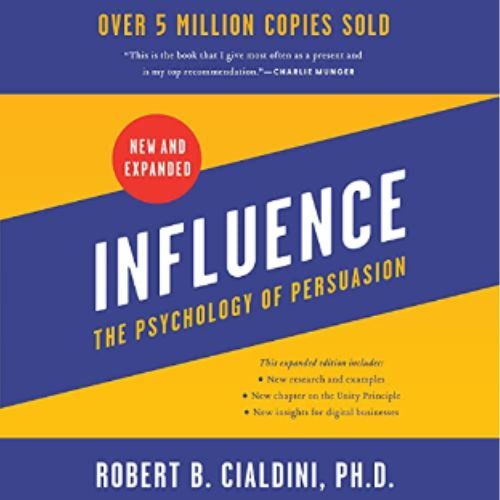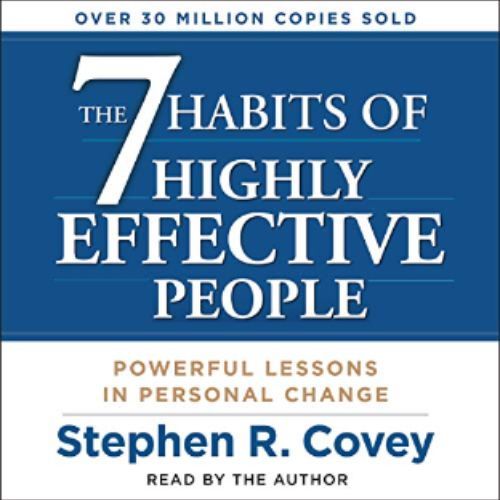Social skills are essential for fostering meaningful relationships, achieving professional success, and navigating the complexities of our ever-changing world. In this article, we present the top social skills books that will empower you to enhance your interpersonal abilities and develop more rewarding connections with others.
As Amazon affiliates we may earn a commission if you purchase a product at no cost to you.
I read 50 Books about Social Skills. Here's what I learned. Watch this great video.
The Top Social Skills Books
1. How to Win Friends and Influence People by Dale Carnegie
Key Points
- Building rapport and cultivating relationships
- Listening actively and understanding others' perspectives
- Asserting oneself diplomatically
Overview
Originally published in 1936, Dale Carnegie's timeless classic remains an essential read for anyone looking to improve their social skills. The book covers fundamental principles, such as showing genuine interest in others, remembering names, and encouraging others to talk about themselves. Carnegie's techniques emphasize the importance of empathy, understanding, and effective communication.

CHECK PRICE
2. Emotional Intelligence 2.0 by Travis Bradberry and Jean Greaves
Key Points
- Understanding the role of emotions in social interactions
- Developing emotional self-awareness and self-management
- Enhancing empathy and relationship management
Overview
This bestselling book provides a comprehensive guide to developing emotional intelligence (EQ), a critical component of social skills. The authors present a four-step program, covering self-awareness, self-management, social awareness, and relationship management. They also provide practical strategies to improve EQ and, in turn, enhance social interactions and relationships.

CHECK PRICE
3. The Charisma Myth: How Anyone Can Master the Art and Science of Personal Magnetism by Olivia Fox Cabane
Key Points
- Developing charisma as a learnable skill
- Utilizing body language and presence to boost appeal
- Cultivating warmth, power, and presence
Overview
In "The Charisma Myth," Olivia Fox Cabane debunks the common misconception that charisma is an innate trait. Instead, she presents a practical approach to developing personal magnetism, based on the three pillars of charisma: warmth, power, and presence. By practicing these principles, readers can enhance their ability to connect with others and improve their social skills.

CHECK PRICE
4. Talking to Strangers: What We Should Know About the People We Don't Know by Malcolm Gladwell
Key Points
- Understanding the challenges of communicating with strangers
- Recognizing the role of biases in social interactions
- Developing strategies for more effective communication
Overview
In "Talking to Strangers," bestselling author Malcolm Gladwell explores the complexities of interacting with people we don't know. Gladwell delves into psychological research and real-world examples to highlight the pitfalls of communication, trust, and understanding. This thought-provoking book encourages readers to reconsider their assumptions about strangers and refine their social skills.

CHECK PRICE
5. Crucial Conversations: Tools for Talking When Stakes Are High by Kerry Patterson, Joseph Grenny, Ron McMillan, and Al Switzler
Key Points
- Navigating high-stakes conversations with confidence
- Developing techniques for effective dialogue
- Enhancing communication and collaboration in challenging situations
Overview
"Crucial Conversations" provides practical tools and techniques for navigating difficult conversations, whether in personal or professional settings. The authors outline a step-by-step approach to engage in open, honest, and constructive dialogue when emotions are high and stakes are even higher. This book is essential for anyone looking to strengthen their social skills and handle tough conversations with poise and confidence.

CHECK PRICE
6. Influence: The Psychology of Persuasion by Robert B. Cialdini
Key Points
- Understanding the principles of persuasion
- Harnessing the power of reciprocity, commitment, and social proof
- Applying persuasive techniques ethically
Overview
In "Influence: The Psychology of Persuasion," renowned psychologist Robert B. Cialdini explores the science of persuasion and the factors that influence our decision-making. The book outlines six key principles of persuasion: reciprocity, commitment and consistency, social proof, authority, liking, and scarcity. Cialdini also emphasizes the importance of using these techniques ethically and responsibly.

CHECK PRICE
7. The 7 Habits of Highly Effective People: Powerful Lessons in Personal Change by Stephen R. Covey
Key Points
- Adopting habits for personal and interpersonal success
- Developing a proactive mindset
- Balancing personal and professional priorities
Overview
Stephen R. Covey's influential book, "The 7 Habits of Highly Effective People," presents a holistic approach to personal and professional development. While not exclusively focused on social skills, the book's principles, such as empathic listening, synergistic collaboration, and continuous improvement, are vital for fostering strong interpersonal relationships. By incorporating these habits into daily life, readers can enhance their social skills and overall effectiveness.

CHECK PRICE
8. The Art of Mingling: Fun and Proven Techniques for Mastering Any Room by Jeanne Martinet
Key Points
- Mastering the art of mingling in social settings
- Developing conversation starters and engaging in small talk
- Exiting conversations gracefully
Overview
"The Art of Mingling" offers a lighthearted yet practical guide to navigating social events and mastering the art of small talk. Jeanne Martinet shares techniques for initiating conversations, maintaining engaging dialogue, and exiting interactions with grace. This entertaining book provides valuable tips for building confidence, making connections, and improving social skills in various settings.

CHECK PRICE
Further Reading and Resources
In addition to the books mentioned above, consider exploring additional resources, such as workshops, online courses, and support groups, to continue developing your social skills. By combining insights from these sources and practicing regularly, you can cultivate the interpersonal abilities needed to thrive in today's interconnected world. Remember, the journey to better social skills is ongoing, so be patient with yourself and remain committed to continuous improvement.
Conclusion
The books listed above offer valuable insights and practical strategies for enhancing your social skills and interpersonal abilities. By investing time in these resources, you will be better equipped to navigate the complexities of social interactions, build meaningful relationships, and achieve greater success in both your personal and professional life. Remember that improving social skills is a lifelong journey, and with dedication and practice, you can continue to grow and excel in your interpersonal connections.
Related Article

Frequently Asked Questions
Can social skills be learned or improved at any age?
Yes, social skills can be learned and improved at any age. While it may be easier to develop these skills during childhood and adolescence, adults can also make significant progress in their social skills by dedicating time and effort to learning and practicing new strategies. The books and resources mentioned in this article can be helpful for individuals of any age looking to enhance their interpersonal abilities.
Are there specific social skills that are more important than others?
The importance of specific social skills can vary depending on an individual's goals, personality, and context. However, some fundamental skills, such as active listening, empathy, effective communication, and emotional intelligence, are widely applicable and beneficial in various personal and professional situations. Developing these foundational skills can significantly improve overall social competence and interpersonal relationships.
How can I practice and improve my social skills?
To practice and improve your social skills, you can:
- Read books and articles on the subject to gain knowledge and insights.
- Participate in workshops, seminars, or online courses dedicated to social skills development.
- Seek feedback from trusted friends or family members on areas for improvement.
- Engage in social situations and practice newly learned strategies.
- Reflect on your interactions and identify areas for growth.
Remember that improving social skills is an ongoing process that requires consistent effort and dedication.
How long does it take to see improvement in social skills after reading these books?
The time it takes to see improvement in social skills after reading these books can vary depending on factors such as an individual's starting point, their dedication to learning and practicing new techniques, and the complexity of the skills being developed. Some individuals may experience noticeable improvements within weeks, while others may require several months or more to see significant changes. It's essential to be patient and remain committed to the process of growth and development.










